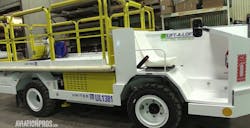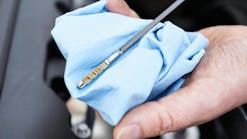DALLAS, TX -- American Airlines will test fuel-saving technology and tactics on a Paris-to-Miami flight this week that the carrier and federal officials hope will help make the case for a new navigation system.
The plane on Thursday's flight will take a direct route guided by global-positioning technology instead of staying within the usual jetliner highways.
It will also ascend and descend more gradually and use other measures, some of which are already becoming standard, such as taxiing out to the runway on one engine instead of two.
American said it will be the first U.S. carrier to test the full range of fuel-saving and emissions-reducing tactics on a trans-Atlantic route. The test is being conducted with the Federal Aviation Administration.
Bob Reding, an executive vice president at American, said the test would demonstrate the benefits of new GPS-based navigation technology that could save fuel - American burned about 2.97 billion gallons last year - reduce air traffic delays and cut emissions. The company says its environmental efforts saved 110 million gallons a year and reduced carbon emissions by 2.3 billion pounds in 2008.
The test will be conducted on American Flight 63, using a Boeing 767-300 aircraft.
Brian Will, an American pilot who flies Boeing 777s, said the plane will make a continuous climb out of Paris De Gaulle Airport instead of inefficiently rising at intervals of 2,000 feet (600 meters) or more at a time, which should save fuel.
Will said the plane will also take a more direct GPS-guided route and will descend gradually into Miami instead of making the usual stair-stepping declines - again, to save fuel and emissions.
"We've invested heavily in a lot of this capability because we know the air space can't handle all the volume it's being asked to handle," Will said.
Despite a recession-caused reduction in travel, the FAA is still pushing to modernize air traffic control to improve fuel efficiency and reduce environmental harm.
FAA official Victoria Cox recently told Congress that the current air traffic control system "is not performing adequately." She said new technology that FAA and the airlines will test - lumped under the label "NextGen" - would meet future travel demand, cut delays and improve safety.
The move to GPS-based navigation could also be boosted by last week's Air France disaster over the Atlantic. That plane disappeared while out of radar range from Brazil and Africa, but experts say a more modern satellite-based surveillance system could let controllers track a plane's path all the way across the ocean.





